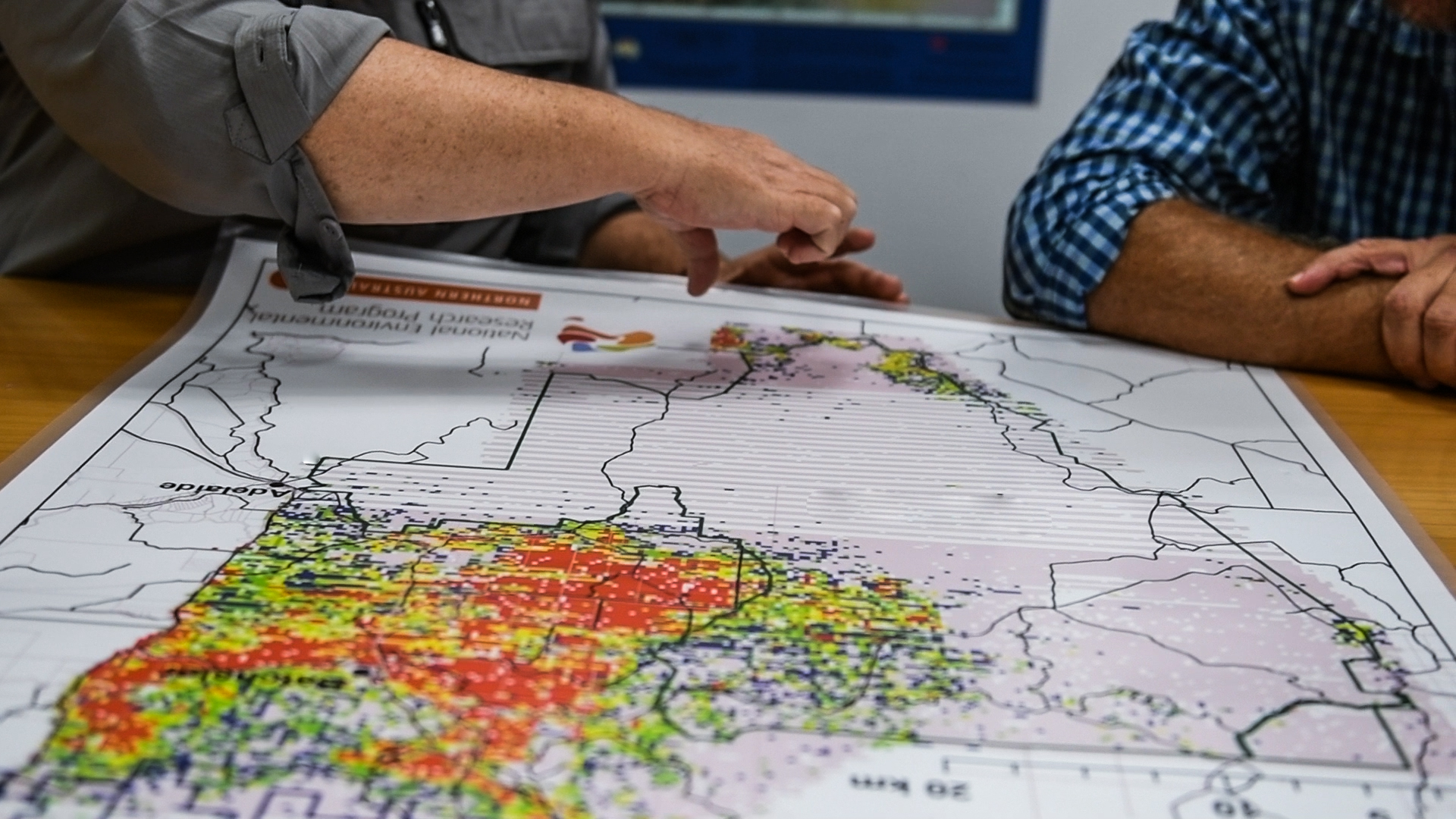5 August 2022
The Resilient Landscapes Hub is taking a user-driven, solutions-focused approach to developing and implementing our research program. All projects are co-designed with a range of research users including Department of Climate Change, Energy, the Environment and Water (DCCEEW) policy-makers, Indigenous land managers, state and territory government agencies, protected-place managers, regional natural-resource management organisations and Landcare groups. Research Plan 2022 (RP2022) contains the first suite of projects identified through targeted scoping workshops with DCCEEW staff.

With such a large program, it is important that time is invested early to build a solid foundation for the subsequent years. In addition to the initial scoping projects from Research Plan 2021 (RP2021), these new shorter projects have clearly defined scopes, which can be expanded with subsequent projects further into the program. This second research plan is focused on kicking off the hub’s research into priority topics and areas. This plan consists of 7 projects.
All 7 projects build upon key research areas identified in RP2021 (see projects below) and provide continued focus for planning and subsequent project development.
Project leaders are listed after each project, and each project page contains information about key researchers for that project. The hub’s key researchers can be found on our People page. You can find out more about the research-provider organisations we’re partnering with on our Who is involved page.
1. Assessing risks to the environment from water-resource development in northern Australia, using north Queensland as a case study (Professor Michele Burford and Dr Ben Stewart-Koster)
This project is compiling tools, research and data, as well as collating a broad range of stakeholder perspectives in the southern Gulf of Carpentaria region. In collaboration with the National Environmental Science Program’s Marine and Coastal Hub and the Cooperative Research Centre for Developing Northern Australia, it will also contribute to the development of a regionally integrated risk-assessment approach.
Key research areas include:
2. Best-practice management for feral cats and red foxes (Associate Professor Guy Ballard and Dr Annalie Dorph)
This project is working with experts to identify best-practice management for invasive cats and red foxes as well as identifying research that will address knowledge gaps to the most effective management practices.
Key research areas include:
3. Using integrated data analysis to assess regional transferability (Associate Professor Vanessa Adams)
This project is using data analysis to identify transferability of research and regional-planning approaches to ensure that we continue to build impactful environmental programs and meet the planning needs of decision-makers in any given region.
Key research areas include:
4. National overview of monitoring frameworks and tools for Ramsar sites (Professor Fran Sheldon)
This project is assessing anthropogenic pressures on Ramsar wetlands and identifying current monitoring methods and selected indicators. It will then develop a future monitoring framework that reflects adaptive-management practices that use emerging methods and technologies.
Key research areas include:
5. Addressing Kakadu’s strategic research needs (Professor Michael Douglas)
This project is collaborating with Bininj/Mungguy people in Kakadu National Park to identify research priorities, update and affirm research protocols for the park and facilitate a suite of projects from other hubs of the Australian Government’s National Environmental Science Program as part of a flagship project for the cross-cutting initiatives.
Key research areas include:
6. Protecting threatened species in safe havens (Professor Matt Hayward)
This project is updating the mapping of the current safe-haven network and the list of species protected by this network. This information will identify future actions to improve species and ecosystem representation.
Key research areas include:
7. Research to support the management of priority desert threatened species (Dr Rachel Paltridge)
This project is working alongside Indigenous ranger groups in desert regions to support better outcomes for the bilby, night parrot and Tjakura (great desert skink) through improved population and distribution understanding, best-practice survey design, utilising emerging technologies and implementing best-practice management of cats and fire.
Key research areas include:
Want to know more about the Resilient Landscapes Hub's activities and our research into practical solutions to environmental problems? Stay informed about activities, research, publications, events and more through the Hub newsletter.
"*" indicates required fields